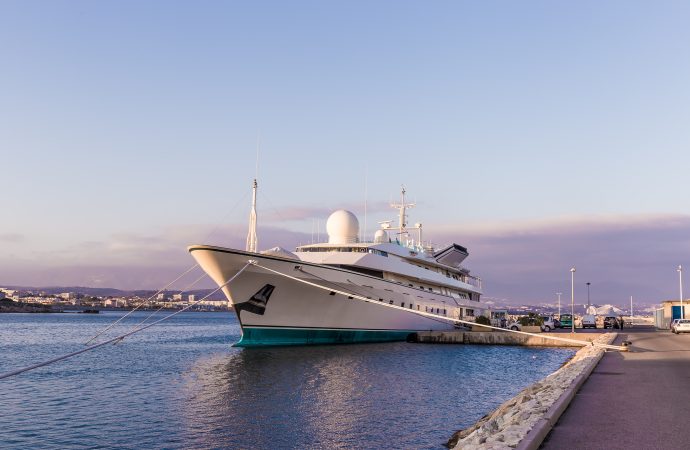International naval exercises are organized military activities conducted by navies from different nations. These exercises are a great way of promoting stability and security in the world, as well as strengthening the ties between countries. Recently, Russia has been invited to join the United States, Canada, and other NATO partners for an international naval exercise
International naval exercises are organized military activities conducted by navies from different nations. These exercises are a great way of promoting stability and security in the world, as well as strengthening the ties between countries. Recently, Russia has been invited to join the United States, Canada, and other NATO partners for an international naval exercise that will take place in the Black Sea. In this blog article, we’ll explore what this means for international relations and security and how these exercises can help foster cooperation between nations.
What are the International Naval Exercises?
The International Naval Exercises are a set of naval exercises conducted by the Russian Federation and various other countries. The exercises are meant to ensure the safety of shipping routes and promote cooperation between navies.
Since the early 1990s, the Russian Federation has been conducting these exercises on a regular basis, usually once every two years. The exercise typically lasts for two weeks and involves surface ships, submarines, and aircraft from all participating countries.
The most recent exercise was held in September of 2020 and involved ships from China, India, Iran, Japan, Pakistan, Russia, and the United States. The exercise was observed by representatives from over 30 different countries.
The International Naval Exercises are an important part of maintaining maritime security and promoting cooperation between navies. These exercises help to ensure that shipping routes remain safe and allow for the free flow of commerce.
Why Are They Being Held With Russia?
The United States and Russia have been working together to improve naval communications and safety in the Arctic region. The U.S. Navy has been participating in these exercises, called “International Naval Communication and Cooperation Exercises with Russia” (INCREEX-RU), since 2016.
The INCREEX-RU exercises are designed to increase mutual understanding between the two countries’ navies, and to help them cooperate more effectively in the event of a real-world emergency. The exercises include both academic exchanges and practical training on topics like search-and-rescue operations, maritime security, and environmental protection.
Both countries have expressed satisfaction with the results of the exercises so far, and they are planning to continue them in the future. One reason for this is that the Arctic region is becoming increasingly important economically and strategically, as melting ice opens up new shipping routes and access to natural resources.
What Other Countries are Involved?
In addition to the United States and Russia, several other countries are involved in international naval exercises. China, India, and Japan are all participating in these exercises for the first time. These countries bring a wealth of experience and knowledge to the table, and their involvement is a testament to the growing cooperation between navies around the world.
The Royal Navy is also taking part in these exercises. The UK has a long history of naval cooperation with Russia, dating back to the Napoleonic Wars. This tradition continues today, as the two navies work together to protect global trade routes and ensure maritime security.
Canada is another important player in these exercises. The Canadian Navy has extensive experience in Arctic operations, and its participation will help to further improve relations between Russia and the West.
These exercises are an important step in improving international naval cooperation. By working together, navies can better protect our oceans and keep them safe for future generations.
What is the Purpose of the Exercises?
The Russian Navy has been increasingly active in recent years, with a particular focus on the Mediterranean Sea. This has led to increased tensions with NATO members, particularly those bordering the Mediterranean. In response to this activity, several NATO navies have conducted joint exercises with the Russian Navy in an effort to increase communication and interoperability.
These exercises typically involve a variety of naval assets from both sides, including ships, submarines, aircraft, and Marines. The goal of these exercises is to improve cooperation between the two forces and increase each side’s understanding of the other’s capabilities. In addition, these exercises provide an opportunity for each navy to test its own capabilities against a different opponent.
One recent example of such an exercise was the 2018 Joint Sea exercise, which involved over 30 ships and submarines from Russia and NATO countries. This exercise focused on anti-submarine warfare and was designed to improve coordination between the participating navies. Other recent examples include Exercise Ocean Shield 17, which took place in September 2017 and involved ships from Russia, the United States, Canada, Japan, South Korea, and India; and Exercise Neptune Warrior 17, which took place in October 2017 and involved ships from Russia and NATO countries.
It is clear that these international naval exercises are becoming more common as tensions between Russia and NATO continue to mount. These exercises provide an important opportunity for both sides to learn about each other’s capabilities and improve communication channels. As relations between Russia and NATO remain strained, it is likely that
Conclusion
Navies unite, indeed! International naval exercises with Russia can be a great way to build trust and friendship between nations. These exercises provide an opportunity to learn from each other and share valuable information about maritime operations. Furthermore, these activities reduce the risk of miscommunication or miscalculation between two countries’ navies, as well as building up their knowledge on different types of military operations in which they may engage. No matter what your opinion is on international relations with Russia, it is clear that such events are beneficial for all involved parties.

















Leave a Comment
Your email address will not be published. Required fields are marked with *